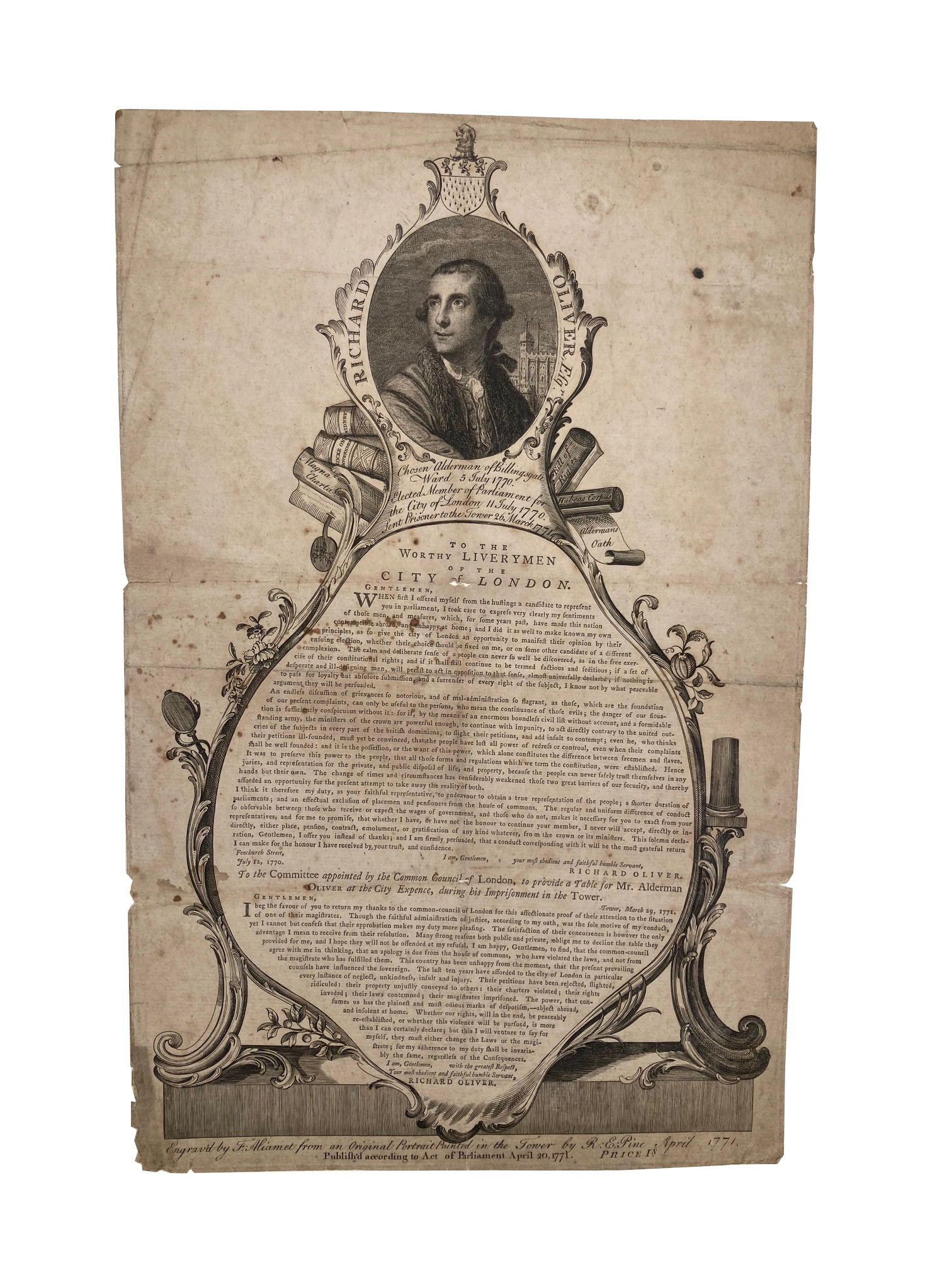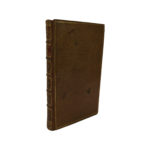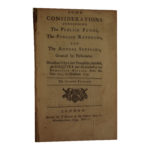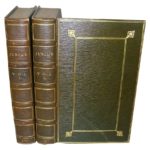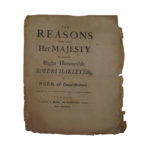Description
[004149] [Oliver, Richard] Richard Oliver Esq. Chosen Alderman of Billingsgate Ward 5 July 1770. Elected Member of Parliament for the City of London 11 July 1770. Sent Prisoner to the Tower 26 March 1771. ill. Aliamet, F. [Engraver]. London: No Publisher, 1771. First Edition. Folio. Unbound. Broadside. Good. Single sided engraved broadside, approximately 245mm x 380mm in size
Browned, lightly creased, and lightly foxed, small split to left hand edge, a couple of small spots of dirt, chipped to edges with small amounts of loss, a couple of tiny holes to centre, just catching a couple of the ‘o’s in ‘of’, but without loss of sense
A portrait within an ornate frame, with books and documents to the side, which include the Magna Charta, Locke, Sidney, the Bill of Rights, and the Alderman’s Oath. The broadside was engraved by F.[rancois] Aliamet (1734-1790), see Alexander, A Biographical Dictionary of British and Irish Engravers 1714-1820, page 47 (though Aliamet was French), after a painting by Robert Edge Pine (1730-1788, the son of the engraver John Pine)
Richard Oliver (1735-1784), politician. “Oliver took up his freedom in the Drapers’ Company on 29 June 1770, and on 4 July following was elected alderman of Billingsgate ward. He was a radical and a founder member of the Society of Supporters of the Bill of Rights, which pressed for reform of government and redress to Wilkite grievances. The radicals controlled the City of London at this time, and when a by-election was called in July 1770 Oliver was elected MP, after the original radical candidate, his brother-in-law Thomas Oliver, had withdrawn from the contest because of ill health. He continued to represent the City until the dissolution of parliament in September 1780, and used his platform in the house to support reforming measures, such as Serjeant Glynn’s motion for a committee to inquire into the administration of criminal justice. Oliver’s most notable appearance in the House of Commons came in March 1771, during the celebrated Printers’ case and the subsequent struggle between the City and the Commons. In a deliberate attempt at confrontation, Lord Mayor Crosby and aldermen Wilkes and Oliver arrested a messenger of the Commons. The Commons sought to punish Crosby and Oliver, both MPs, choosing to ignore Wilkes. Due to the illness of Crosby, much of the house’s attention was focused on Oliver, who declined to defend himself and defied the Commons, stating that he had acted according to his conscience. An angry Lord North moved for his commitment to the Tower of London, which was carried by a large majority in the house, after midnight in the debate of 25 March 1771. When the parliamentary session closed on 8 May, Oliver and Crosby were released from the Tower and conducted in a triumphal procession to the Mansion House. The City showed its gratitude to Oliver by presenting him with a silver-gilt cup in March 1772, and he was elected a general of the Honourable Artillery Company in August 1773” (Oxford DNB)
Not in ESTC
